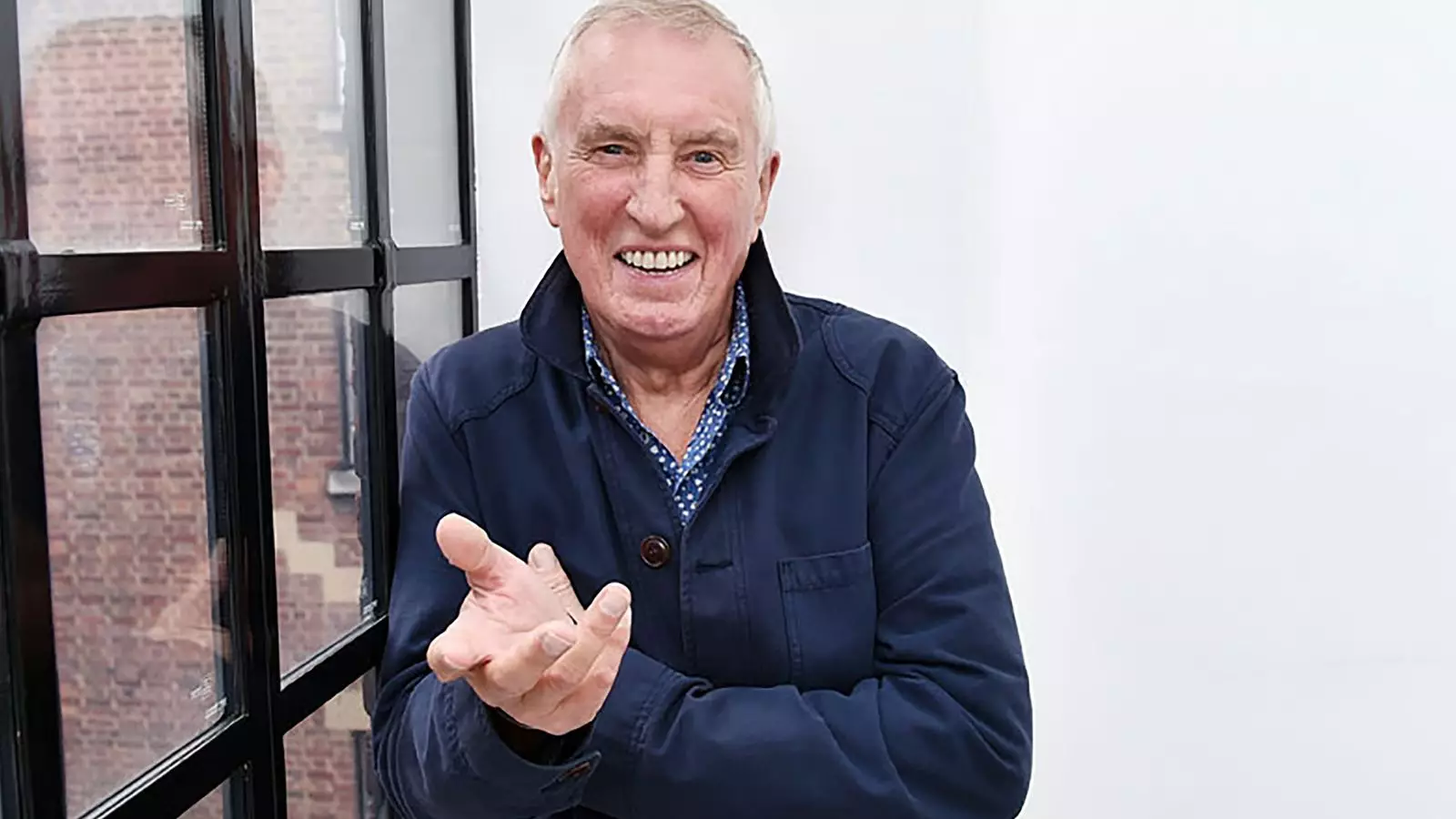The world of radio has lost a significant figure with the passing of Johnnie Walker, a venerable DJ whose voice resonated through decades of musical evolution. The 79-year-old, best known for his roles on BBC Radio 2’s “Sounds of the 70s” and “The Rock Show,” brought a unique charm and enthusiasm to the airwaves. Announcing his retirement in October, Walker encapsulated a remarkable 58-year career that left an indelible mark on the broadcasting landscape. His wife, Tiggy Walker, eloquently expressed her pride, underscoring the grace with which he faced his chronic illness, idiopathic pulmonary fibrosis (IPF). As tributes continued to pour in, it became evident that Walker was not just a DJ; he was a beloved cultural figure whose passion for music inspired countless listeners.
Walker’s career is a reflection of his love for music. He began his journey far from the glitz and glamour of the radio studio; born in Birmingham, he started working as a mechanic at a young age. Yet, even in the world of cars, his passion for music simmered beneath the surface. Under the alias Peter Dee, he embraced the exhilarating world of disco, taking a Friday night slot that showcased his burgeoning talent. The transition to radio would come in 1966 when he joined an offshore pirate station. It was at Radio Caroline that Walker found his footing and solidified his status as a household name.
His move to BBC Radio 1 in 1969 marked the beginning of a new chapter. This was not merely a career change; it was a step onto a stage where he could amplify his artistic voice. The vibrant atmosphere of 1970s radio allowed him to connect intimately with his audience while promoting emblematic artists like Fleetwood Mac, Lou Reed, and The Eagles. Through his shows, he championed not just the music but the stories behind it, creating a narrative that enriched the listening experience.
A Unique Broadcasting Style
What set Walker apart was his dedication to the music itself rather than the chatter that often fills radio discourse. His reverence for artists and tracks transformed listening sessions into voyages of discovery for his audience. Helen Thomas, the head of BBC Radio 2, celebrated Walker’s ability to inspire a new generation of presenters while passionately promoting the artists he adored. His approach resonated deeply within the broadcasting community, where the focus on genuine musical passion is often eclipsed by sensationalist commentary.
Comments from other presenters reveal a profound respect for his distinctive style. Shaun Keaveny, who took over “The Rock Show” following Walker’s departure, described him as “a rebel” and “a phenomenal broadcaster.” These characterizations emphasize not only Walker’s talent but also his commitment to the essence of music that many DJs overlook. He was a curator of musical journeys, guiding listeners through the rich landscapes of sound.
In addition to his illustrious career, Walker’s life story is one of resilience. In 2003, he faced a significant health crisis with a non-Hodgkin’s lymphoma diagnosis, undergoing chemotherapy and surgeries that resulted in critical complications. His candid revelation of his near-death experiences during his post-operative recovery showcased not only his strength but also his unwavering commitment to his craft. This transparency fostered an even deeper connection with his listeners, who appreciated his authenticity.
The fight against IPF, a debilitating condition that affects one’s ability to breathe, was another battle Walker faced. Even with these challenges, he continued to broadcast, embodying a spirit of determination that inspired many. His last days were marked by dignity, humor, and an unwavering love for music, embodying the characteristics that endeared him to generations of listeners.
Walker’s legacy is one that extends beyond his time on the air. He represented the spirit of radio in its purest form—a medium that connects, inspires, and elevates the artistic spirit. The love and admiration expressed by those who knew him and those who listened to him regularly is a testament to the profound impact he made. As the world bids farewell to this broadcasting titan, it is vital to remember his contributions and the bridge he created between artists and their audience. His voice may fade from the airwaves, but his influence will remain a vibrant part of music history for years to come.



Leave a Reply